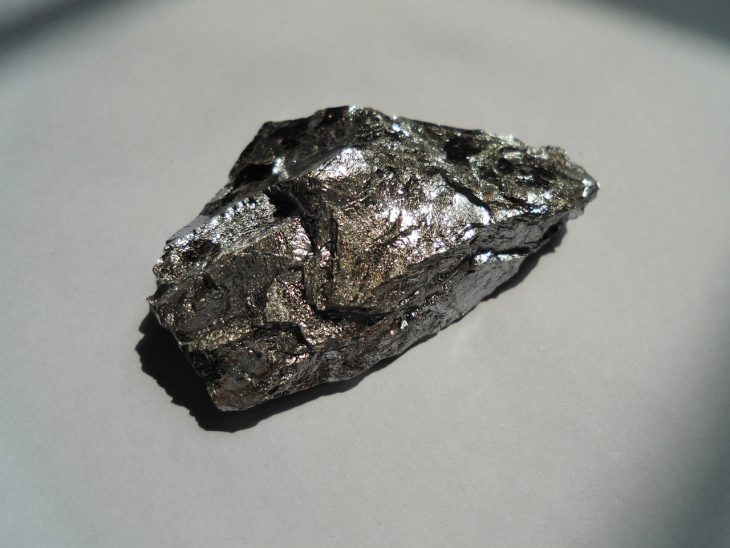
Chromium is a fascinating element that plays a crucial role in various biological processes within the human body. From its discovery to its importance in human health, chromium has captivated scientists and researchers for decades. In this comprehensive article, we will dive into the world of chromium and explore its fun facts, including its properties, uses, and potential health benefits. Get ready to unravel the mysteries of this essential trace element and discover why it is so vital for our well-being!
The Discovery of Chromium
Chromium was discovered in 1797 by French chemist Louis Nicolas Vauquelin. While analyzing a red lead ore sample, Vauquelin noticed a vibrant yellow component, which he named “chromium” after the Greek word “chroma” meaning color.
Abundance in Earth’s Crust
Chromium is relatively abundant in the Earth’s crust, ranking 21st among all elements. It is primarily found in chromite ore, which is widely distributed around the world.
A Mighty Mineral
Chromium is a chemical element represented by the symbol Cr and atomic number 24. It belongs to the transition metal group and is known for its exceptional hardness and resistance to corrosion.
Hardness and Durability
Chromium is known for its exceptional hardness and resistance to corrosion. When combined with other metals, such as steel, it forms alloys that exhibit enhanced strength and resistance to wear and tear. This property makes chromium a valuable component in the production of stainless steel and other alloys used in various industries.
Lustrous Appearance
Chromium has a distinct lustrous appearance, often referred to as a “chrome” finish. This characteristic makes it a popular choice for decorative purposes, such as automobile trim, faucets, and kitchen appliances.

Blood Sugar Regulation
Chromium plays a significant role in the metabolism of carbohydrates, particularly in the regulation of blood sugar levels. It assists in the transportation of glucose from the bloodstream into cells, where it can be used as an energy source. This function is particularly important for individuals with diabetes or insulin resistance.
Essential Trace Mineral
Chromium is an essential nutrient, meaning it is required for normal bodily functions, but in small amounts. Although the precise mechanisms of chromium’s actions are not yet fully understood, it is known to play a role in carbohydrate and lipid metabolism.
Enhanced Insulin Sensitivity
Chromium is believed to enhance insulin sensitivity, improving the body’s response to insulin. This effect can contribute to better glucose control and potentially aid in weight management.
Potential Cardiovascular Benefits
Research suggests that chromium supplementation may have positive effects on cardiovascular health. It may help reduce LDL cholesterol levels, increase HDL cholesterol levels, and improve overall lipid profiles.
Promotion of Muscle Health
Chromium is involved in protein synthesis and may play a role in promoting muscle health and enhancing athletic performance. However, further research is needed to fully understand the mechanisms behind this potential benefit.
Energy Production
Chromium is involved in the metabolism of macronutrients, such as carbohydrates, fats, and proteins. It aids in the breakdown of these nutrients, allowing the body to produce energy more efficiently.
Metabolism Support
Chromium is often linked to its potential role in supporting metabolism and weight management. Some studies suggest that chromium supplementation may help improve body composition by increasing lean body mass and reducing body fat.
Colorful Pigments
Chromium compounds are widely used in the production of pigments for paints, dyes, and inks. These compounds provide vibrant colors, including the iconic green of emeralds and the vibrant red of rubies.
Industrial Applications
Chromium’s resistance to corrosion and ability to withstand high temperatures make it invaluable in various industrial applications. It is used in the production of stainless steel, aircraft parts, electrical equipment, and more. Its addition improves the strength and heat resistance of high-performance superalloys, ensuring the reliability of components in extreme conditions.

Chromium in Gemstones
Chromium is responsible for the vibrant green hues seen in precious gemstones like emerald and alexandrite. Its presence imparts captivating colors that have captivated jewelry enthusiasts for centuries.
Electroplating Brilliance
Chromium electroplating is a widely used technique to provide a decorative and protective coating on surfaces. It enhances the aesthetic appeal of objects and improves their resistance to wear and corrosion.
Conclusion
Chromium is a remarkable element that showcases a unique blend of properties, versatility, and vital contributions to human health. From its origins to its applications in various industries, chromium continues to inspire and amaze scientists and researchers. Understanding the importance of chromium in our bodies and its role in everyday life helps us appreciate the significance of this trace element. So, next time you admire the lustrous shine of a chrome surface or savor the health benefits of a chromium-rich diet, remember the fascinating fun facts behind this element of vitality.
Frequently Asked Questions (FAQs)
Is chromium a rare element?
No, chromium is relatively abundant in the Earth’s crust, ranking 21st among all elements. It is primarily found in chromite ore, which is widely distributed around the world.
How does chromium affect blood sugar regulation?
Chromium assists in the transportation of glucose from the bloodstream into cells, where it can be used as an energy source. This function helps regulate blood sugar levels and is particularly important for individuals with diabetes or insulin resistance.
Can chromium supplementation improve cardiovascular health?
Research suggests that chromium supplementation may have positive effects on cardiovascular health. It may help reduce LDL cholesterol levels, increase HDL cholesterol levels, and improve overall lipid profiles.
What are the industrial applications of chromium?
Chromium’s resistance to corrosion and ability to withstand high temperatures make it invaluable in various industrial applications. It is used in the production of stainless steel, aircraft parts, electrical equipment, and more.
Can chromium promote muscle health and enhance athletic performance?
Chromium is involved in protein synthesis and may play a role in promoting muscle health and enhancing athletic performance. However, further research is needed to fully understand the mechanisms behind this potential benefit.
Was this page helpful?
Our commitment to delivering trustworthy and engaging content is at the heart of what we do. Each fact on our site is contributed by real users like you, bringing a wealth of diverse insights and information. To ensure the highest standards of accuracy and reliability, our dedicated editors meticulously review each submission. This process guarantees that the facts we share are not only fascinating but also credible. Trust in our commitment to quality and authenticity as you explore and learn with us.


